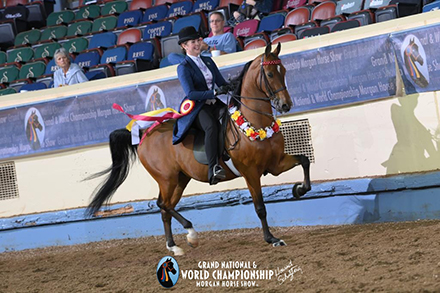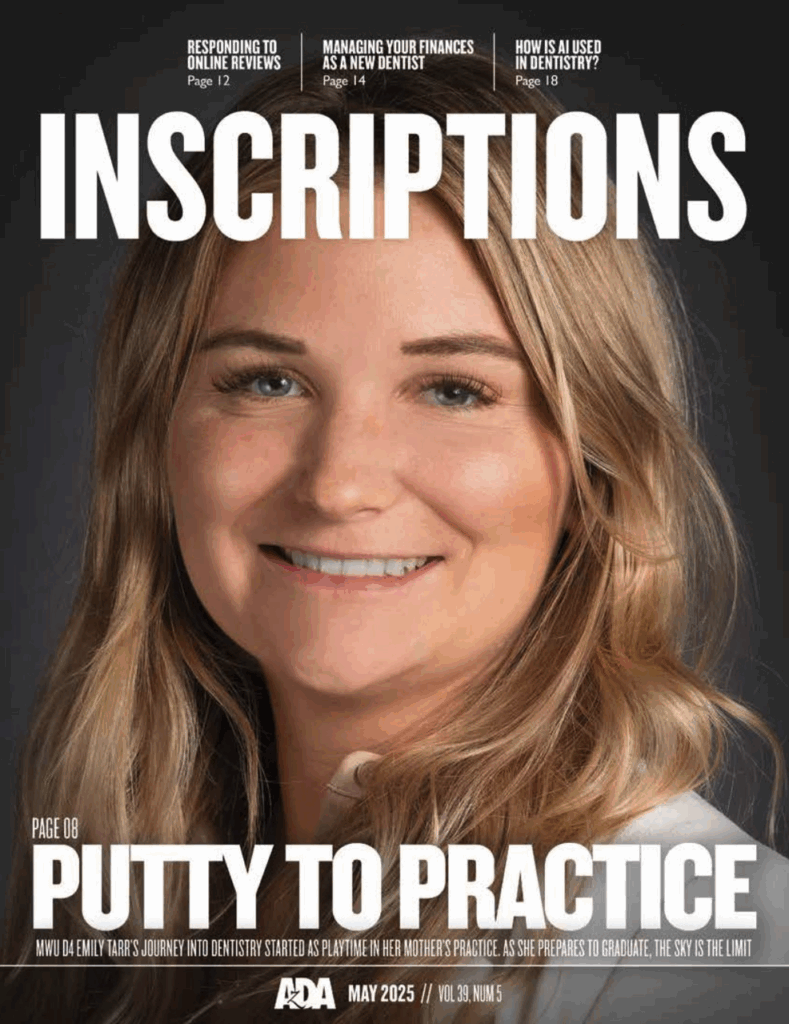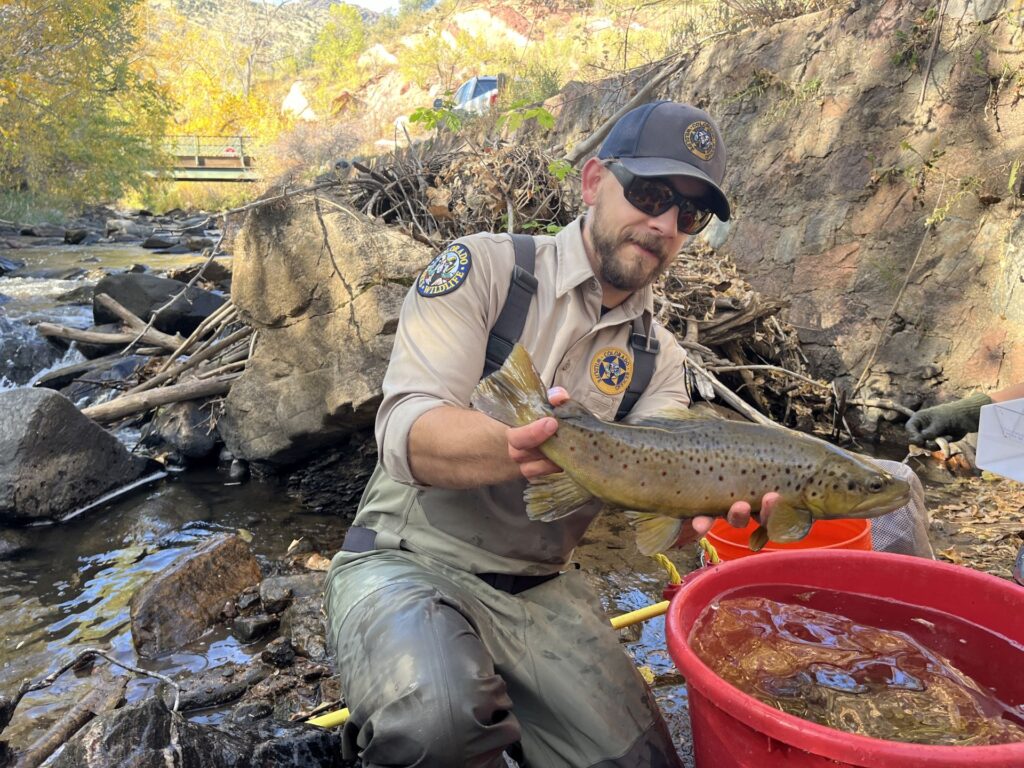Katie Hodges ‘14, an equestrian who has been competing since the age of 12, recently won the titles “Grand National Champion Classic Pleasure Saddle Three Year Old” and “Reserve World Champion Classic Pleasure Saddle Junior Horse” at the Grand National and World Championship Morgan Horse Show in Oklahoma City.

An official photo from Katie’s world title competition in Oklahoma City.
“I’ve gotten third place and a few national titles but I’ve never won a world title,” said Hodges. “It was my first year ‘winning the roses’ as they say. My horse was given this big blanket of roses when we won.”
Hodges competed at the show with a three-year-old horse named Break the Bank, or Cash for short. Cash, as well as all of the horses that competed at the show, is a Morgan horse, a breed that originated in Vermont and is even the Vermont state animal. “When I received my titles, they announced that I was from Vermont and it was nice to see that come full circle,” said Hodges.
Hodges explained that, during the show, different classes highlight a horse’s athletic ability, manners, age, dressage, ability to execute obstacles, and more. Equestrians often choose the division they want to compete in and begin training for it, she said.
Dedicated to her training, Hodges traveled two hours to Manchester Center, Vermont, twice a week to train at a barn owned by a family. Since this was Cash’s first year of competing, Hodges said, she focused on teaching him the basics of communication between the horse and the rider. “I use my leg as the gas pedal so I’m either squeezing his belly or giving him a kick with my heel to send him forward,” she said.
The intricate methods of communication between the horse and the rider are the key elements of equestrian sports, she said. Horses naturally walk with their heads held up, taking high steps, said Hodges. Once a rider gets on the horse’s back, the horse tends to get confused and walk in a more hunched fashion. It is the equestrian’s job to teach the horse how to walk as they normally would but with a rider, she said. For example, Hodges will wiggle her pinkies against the horse’s neck to signal that he must send his head up.

Katie is all smiles riding her Morgan horse Cash in the competition.
Hodges said that subtlety of cues from the rider is a key skill that judges look for at horse shows. Judges also look at the horse’s positioning, etiquette, manners, and the position of legs while walking.
At Hodges’ recent horse show, multiple horses were in the ring at the same time, she said. “Part of the show was figuring out how I could display my horse’s abilities while in the ring with so many others,” she said. “It was important to speed up or slow down at certain moments so that my horse and I were on our own instead of in the group.”
Hodges said that the support she has received from her family and the trainers has helped her stay so active in this sport for nearly her whole life. “As a 30-year-old, looking back on my history with this sport and seeing how far I’ve come and how much I’ve learned has been really motivating,” she said.
The relationship between Hodges and the horses that she rides is another motivating element of the sport, she said. “The horse is dependent on me to show up and give him my best just like he’s giving me his best,” she said. “So knowing that the horse is trusting me and that I’m responsible for presenting him in the best light has kept me motivated.”

Katie with her mother, friend, and friend’s mother who all came to support her at the show.
Hodges graduated from Saint Michael’s with a degree in psychology and a minor in media studies. Hodges said that she appreciated the close-knit community that Saint Michael’s fostered. “It’s really translatable from college to now because I’ve found a similar familial feel in the Morgan horse community,” she said. “At Saint Michael’s, the community thrived off of our shared love for the school. With the Morgan horse community, we’ve bonded over the shared love of this horse breed.”
Hodges said that she felt the close-knit aspect of the Morgan horse community at the horse show she recently attended. Even though everyone was competing against one another at the show, they were all still cheering one another on and offering advice if an individual was having problems with a horse, she said.
“It really wasn’t about winning,” she said. “It was about supporting one another and appreciating this amazing horse breed.”

For all press inquiries contact Elizabeth Murray, Associate Director of Communications at Saint Michael's College.






